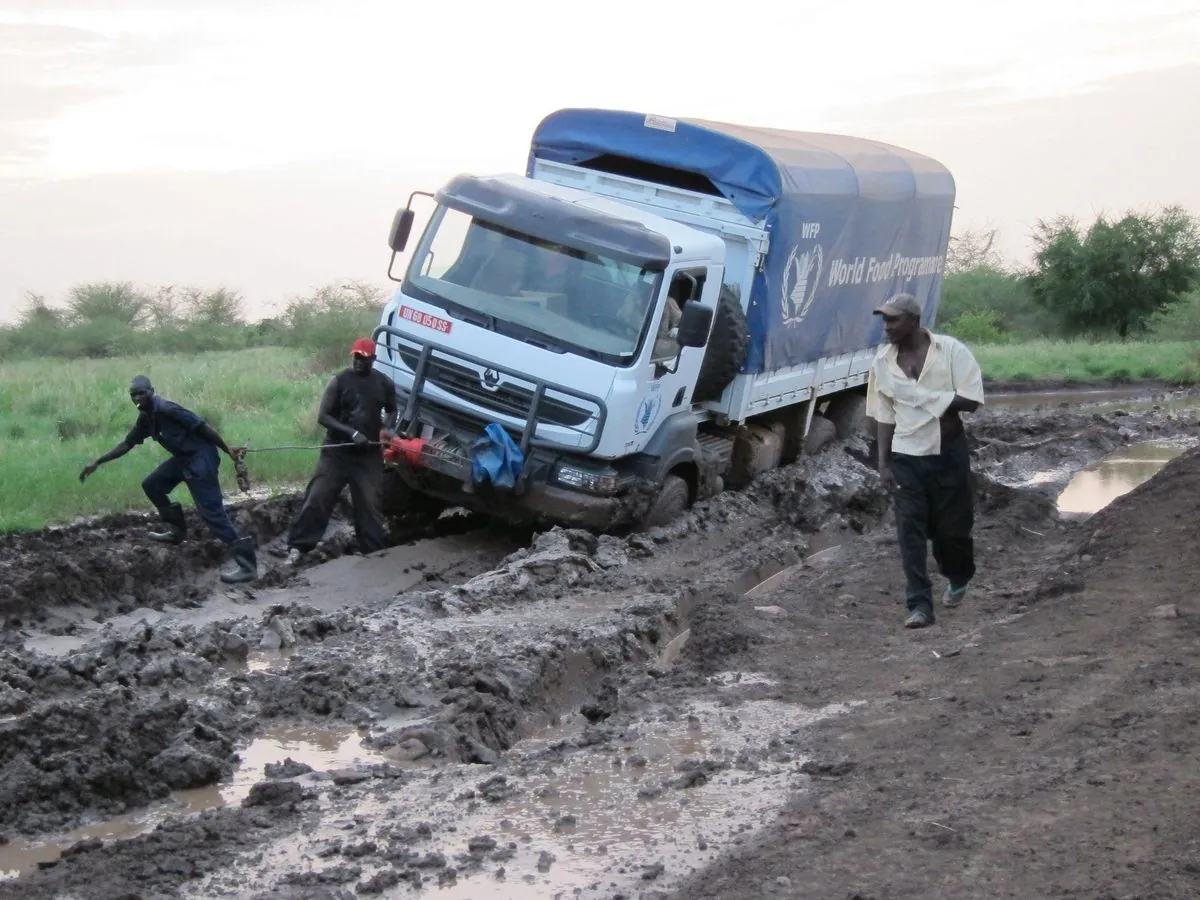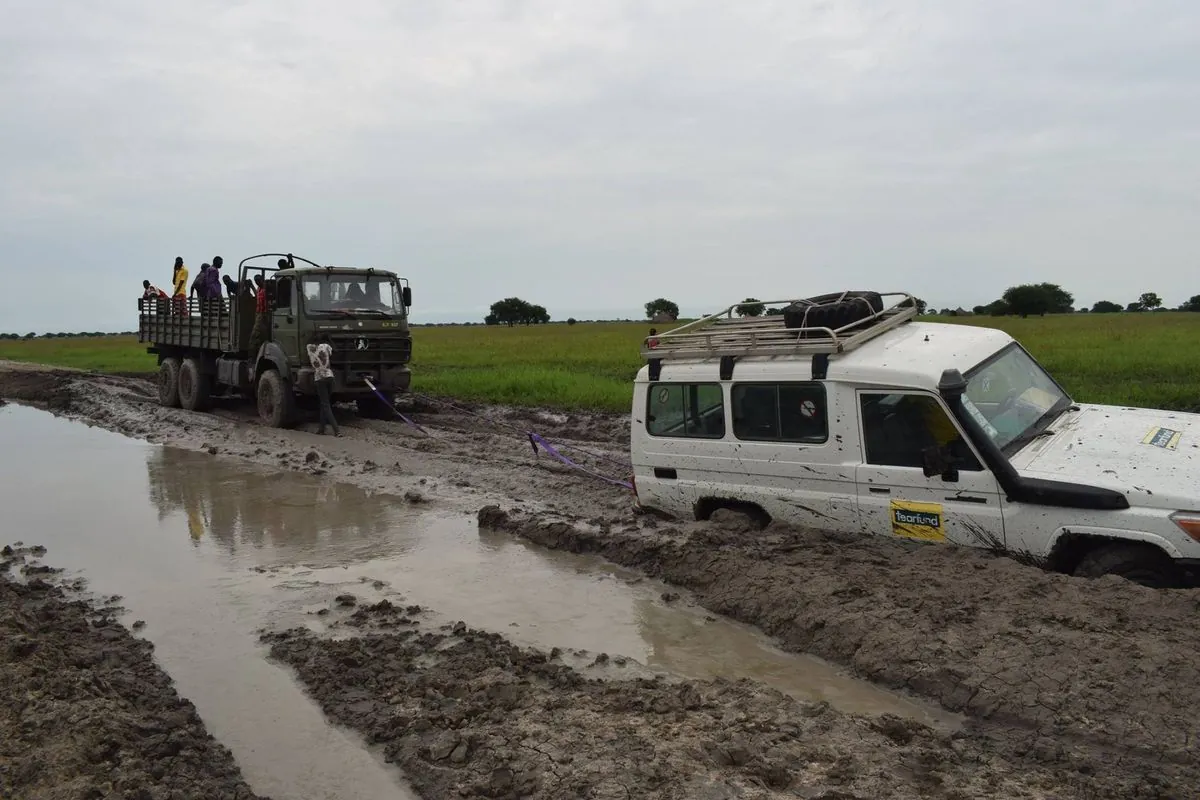WFP Seeks Urgent Aid for 2.5 Million Facing Famine in Sudan
WFP director highlights Sudan's overlooked crisis, with 2.5 million at risk of famine. Rainy season hampers aid delivery as the agency grapples with funding shortages and logistical challenges.

The World Food Programme (WFP), the world's largest humanitarian organization founded in 1961, is facing significant challenges in addressing the ongoing crisis in Sudan. Cindy McCain, the WFP director, has emphasized the urgent need for improved access to at-risk populations and increased funding to assist over 2.5 million people facing famine in the country.
Sudan, the third-largest country in Africa by area, has been embroiled in conflict since mid-April 2023, when tensions between military and paramilitary leaders erupted. This latest turmoil adds to a long history of instability, as Sudan has experienced multiple civil wars since gaining independence from the United Kingdom in 1956.
The current crisis has led to the internal displacement of approximately 10 million people, contributing to Sudan's total of over 3 million internally displaced persons. The situation is particularly dire in regions like Darfur, where conflicts have persisted since 2003.
McCain expressed concern that Sudan's crisis is being overshadowed by other global issues, stating, "Sudan's nearly a forgotten crisis right now." This oversight is occurring despite the country's significant humanitarian needs and complex challenges.
The WFP's efforts to provide aid are further complicated by Sudan's geography and climate. The country experiences a rainy season from June to September, which severely hampers aid delivery. McCain described the difficulties in reaching Zamzam camp, home to over 400,000 displaced individuals:
"It's taken our trucks almost two weeks to get in there. Bridges are washed out. Roads are washed out. It's a combination of really tragic situations."

The Zamzam refugee camp, established in 2004 in North Darfur, was declared to have crossed famine thresholds in February 2024. This declaration underscores the severity of the situation and the urgent need for intervention.
Sudan's diverse landscape, which includes the meeting point of the Blue and White Nile rivers in Khartoum, presents both opportunities and challenges for aid distribution. The country's population of approximately 45 million people, comprising over 500 ethnic groups, further complicates relief efforts.
The WFP is grappling with donor fatigue in the wake of the global pandemic, forcing the organization to adapt its strategies. McCain emphasized the need for efficiency and effectiveness, stating, "We have to do more with less." The WFP is developing new technologies to predict weather patterns and improve food distribution in emergencies.
Sudan's economic challenges, exacerbated by the separation of South Sudan in 2011 and international sanctions since the 1990s, contribute to the complexity of the humanitarian crisis. The country's reliance on agriculture and oil exports has been severely impacted by ongoing conflicts and political instability.
As the situation in Sudan continues to deteriorate, the WFP urgently calls for increased international attention and support to address the looming famine and provide essential aid to millions of vulnerable individuals.


































